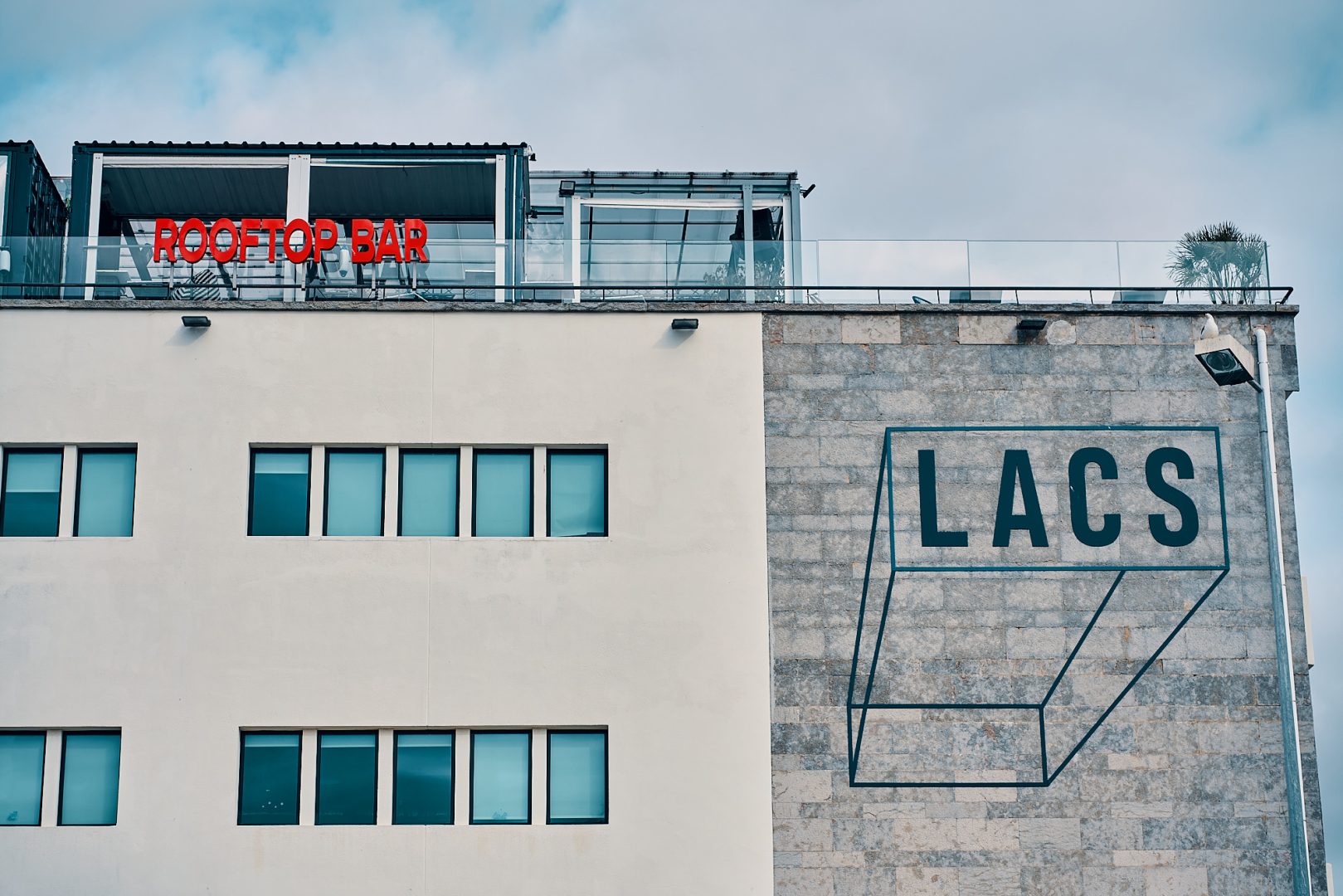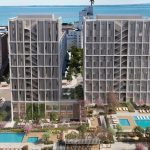LACS – Where comfort and community are key
Over the past four years, since Martim de Botton took the helm at the LACS network of co-working spaces, he has revolutionised the company into much more than mere office spaces; he has created a dynamic and flexible experience to help companies and professionals innovate and live, connect and work in an entirely different way.
Text: Chris Graeme Photos: Supplied
The concept of an office space that offers massages, happy hour drinks parties, yoga and leisure activities simply didn’t exist when I was working as a journalist for a large weekly newspaper group on the outskirts of London in the early 1990s.
How times have changed! Gone are the dark suits, white shirts, ties and black shoes. A new age of work in jeans, sneakers and T-shirts has been ushered in since the Millennium, gaining traction since Covid; one that offers a better work-life balance infused with a sense of community, belonging and after-work fun.
With 30,000sqm of co-working spaces at Conde d’Óbidos, Santos and Anjos in Lisbon, and Cascais and Porto, the Portuguese company LACS has not only provided a new lease of life for otherwise empty or abandoned buildings, revamping and redesigned them to provide its members with shared workspaces and common services.
It has helped to rewrite the entire code and culture of the workplace, creating a flexible, networking-friendly environment that encourages small businesses to thrive and expand.
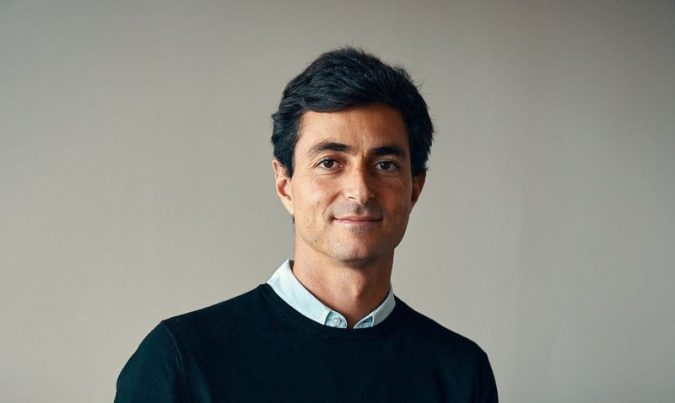
I meet LACS CEO, Martim de Botton, at their co-working centre by the ship repair yard in Lisbon’s Conde d’Óbidos, a stone’s throw from the Tagus riverfront.
Martim has had an interesting professional journey as an entrepreneur. In 2022 he took the helm at LACS, which had been founded four years earlier with the ambition to help companies and their employees thrive and evolve by fostering networking, synergies and innovation.
Until 2022, Martim Botton was the CEO and founder of Aruki Sushi Delivery, and prior to that he was the CEO of Italian ice-cream parlours Santini, having been involved in catering projects for more than 10 years.
He then took the helm at LACS, which had been founded four years earlier with the ambition to help companies and their employees evolve by fostering networking, synergies and innovation.
“I wanted to make LACS a different kind of place for our members and those who come to visit them. This meant staying true to the idea of having work spaces where work, culture and leisure blend together in perfect harmony,” he reflects
The question that puzzles me is why would any small company want to hire office space by a dockland industrial zone on the periphery of central Lisbon and far from the city’s central business district (CBD)?
Here there are no shops, not many cafés, bars, restaurants or amenities within walking distance, and the area is virtually amputated by the busy Lisbon-to-Cascais coastal road and the railway to the same destination.
“Business owners are surprised by the place. It’s right by the river and seven minutes from the CBD by bus, tram or car, although I understand that the concept of being in the CBD is still important for some multinationals,” Martim reflects.
To be fair, as Lisbon has embraced the idea of the 15-minute city further along the riverside to the east with Parque das Nações, the Lisbon City Council now has ambitious plans to spruce up this entire area, improve connectivity by extending the metro, and develop a whole range of residential, food and leisure areas right along the river.
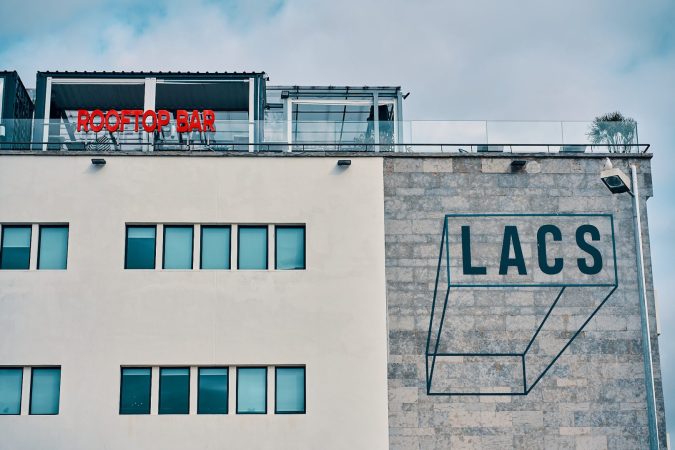
A creative idea over a fish dinner
The company has been in Portugal for seven years now after opening in 2018, on the crest of the wave of so many relocators and digital nomads coming to Lisbon in search of a more relaxed and sunny lifestyle. I ask him how and why the company was founded.
“It was an era of opportunity with startups, small businesses and digital nomads coming to the city. There is a wonderful fish restaurant on the other side of the river called Último Porto. Two friends were having lunch there and they saw this building where we are today that had been the old washrooms and lockers for Port of Lisbon workers.
“At that time, the Port of Lisbon Association was trying to develop the site and came up with a plan to transform the area for creative industries and that was how LACS was born,” explains Martim.
Martim stresses that not all of the buildings that LACS occupied were abandoned and dilapidated.
“Each one has its unique features. In Anjos we set up in the former Industrial Tribunal building; the Cascais co-work had been occupied by a company; while the façade of the Santos building designed by famous architect Gonçalo Byrne on Lisbon’s Avenida 24 Julho had won the prestigious Valmor architecture prize. LACS Porto had been occupied by the ill-fated unicorn Farfetch.”
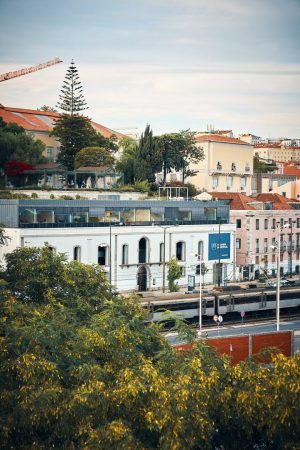
A big building business model
The entrepreneur says that LACS has looked at opportunities to expand beyond Lisbon and Porto but is still not 100% confident. “Unfortunately, the majority of companies want to be in Lisbon and Porto and we’ve responded, especially given our large building-focused business model which works on the notion that the majority of overseas companies want to work in the two main cities,” he says.
Martim explains that 97% of LACS revenues come from private offices – meaning small companies. The other 3% are digital nomads, co-workers and freelancers. “Although we’ve looked at Braga and Aveiro, we think that Lisbon and Porto can grow more, whereas in smaller cities it would be much more difficult to fill the buildings with lots of companies.”
But it’s not just big companies LACS is angling at. Take Cascais, for example – the office there has more than 150 small companies.
And while they want fairly large premises, small companies are not generally looking to set up in sophisticated BREEAM, LEED and ESG-compliant buildings that tend to attract the large multinationals.
“In the beginning we had a lot of tech companies, but now the business is evolving to include law firms and accounting companies employing up to 30 people. The Porto building, for example, is occupied by the Portuguese Lawyers’ Association which has leased an entire floor.”
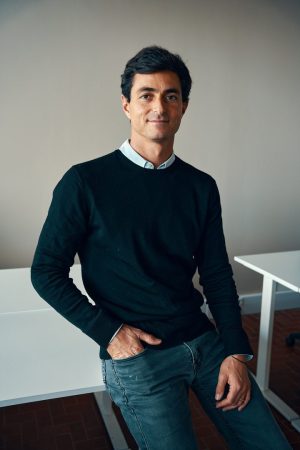
A sense of belonging
Martim says that companies have realised that their employees want to have a sense of belonging in the premises where they work, rather than the old soulless 1980s model, where an office was an antiseptic environment of grey desks shunted between cheap partitions and subdivisions where you just went to work at 9am and left at 5pm.
“Today, they want to offer a harmonious environment with a sense of life, one that fosters a work-life balance in a community space where employees can mingle with other people, not just their colleagues.”
Martim won’t reveal the company’s annual turnover or net profits; save to say “it’s good”, and admits that Portuguese business owners of non-listed companies are notoriously cagey about revealing numbers, other than revealing that LACS employs just 25 staff, including three people per building. “We hire on a needs basis because we cannot afford many fixed costs.”
However, it has reported investments that stood at €7.5 million last year and client numbers, or ‘members’, who numbered 3,500, and 350 companies, including startups, scale-ups and a spattering of small multinationals.
Some of the names are surprisingly ‘household’ in Portugal and abroad, such as Cognizant, EDP Inovação, GALP, Uber, Rock in Rio, Multilem, R Power, PWC and Satore Studio, among others.
Stiff competition
I ask Martim about the competition from other companies offering co-working spaces in Lisbon, such as the latest new kid on the block, Monday from Spain, and the more established companies like Regus, Kube Cowork, Spacesworks, Heden, Second Home Lisbon, Village Underground Lisbon and Avila Spaces, not to mention more than 50 other co-working spaces dotted around the Portuguese capital alone.
They all have pros and cons, with fees of around €350/month for individual resident members, €250/month for ‘hotdesk’ roaming members, and of course much higher fees for entire companies, ranging anywhere from €200-€2000 and upwards per month, depending on the type and size of space, the number of employees, location, and all of the amenities, facilities and services offered.
The best, like LACS, offer dedicated desks, private offices, meeting rooms with audiovisual facilities, events rooms, on-site cafés and food bars, lounge hangout areas, showers and even access to wellness programmes, with fitness classes and yoga sessions and afterwork parties.
Some of these spaces can gain added value during after-work hours, hired out for small-scale workshops, talks, seminars, presentations and other events that would be more expensive in traditional Lisbon hotel meeting rooms.
“The sector is growing a lot, and for some small companies, the lack of fixed costs is attractive. I say to companies that are exploring co-working offices: ‘Why do you want to worry about electricity and water bills, security companies and cleaning firms when we can provide it for you?’,” Martin asserts.
He admits that the traditional shirt-and-tie offices are also now providing these amenities, but says they often lack a sense of community which is something LACS offers.
“This is really important, especially after Covid-19 when people started to have doubts about going to the office. Here at LACS, we offer a different concept with massage services, happy hours, yoga and a whole host of activities, and that attracts people to the office again under a new concept that is about community and a sense of belonging as much as it is about working,” says Martim, adding that in every LACS building there is a cafeteria.
And adds: “It’s interesting to see the diversity of workers from building to building and even floor to floor,” he remarks, explaining how the first two floors of Conde d’Óbidos is occupied by young casual techies, while the upper floors are populated by staff with a more conventional jacket-and-tie culture.
Martim de Botton stresses that LACS positions itself as more than a co-working space. “There is a trend now for flexible office spaces which is the model that we pursue today. I think that business overall is evolving towards our kind of model.
“If you go to the traditional office parks and ask them about their occupancy rate, it’s often surprisingly low – between 30-40% and the rest stands empty. The companies and real estate funds that manage these spaces can lose money, while companies are paying high rents for the offices and people don’t go there,” he reflects.
“At the end of the day, if you add up all of the costs that you have with a traditional lease, the conclusion might be it’s more economical to rent space in a flexible office, because at LACS you only have to worry about your business, and not the crippling overheads you find in a traditional office setup,” he explains.
Last, I am curious to know what Martim thinks about the established trend of co-workers and startup techies to wear jeans, hoodies, T-shirts and sneakers; so different to the 1980s and 1990s when it would have been unthinkable to turn up to an office without a grey suit, white shirt and tie.
He laughs and says: “We have a saying in Portugal: ‘The cowl doesn’t make the monk’.” That tells me that appearances can be deceiving and that a person’s true essence is not defined by their outward trappings but by the results they deliver. “Things evolve and change!”



